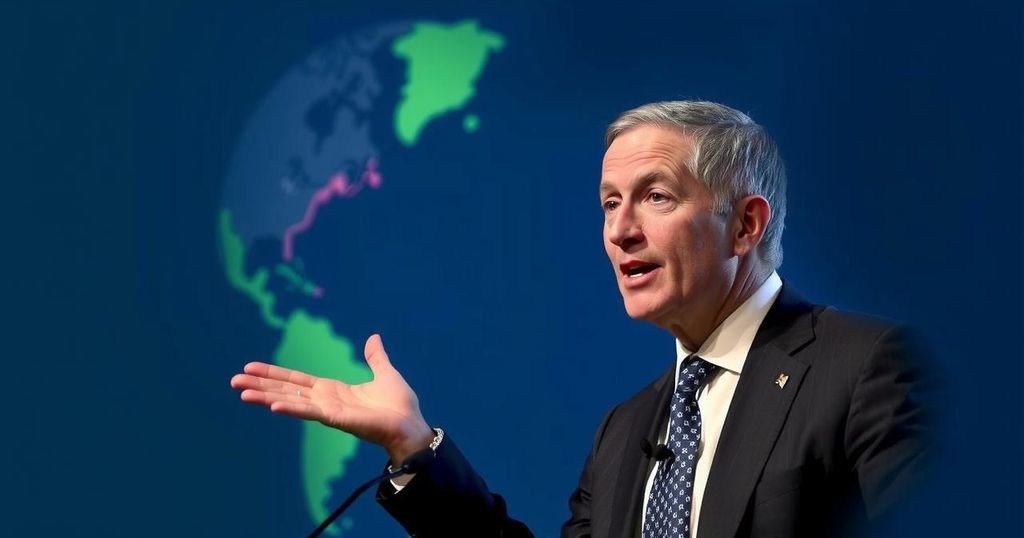World Bank Climate Objectives to Remain Steadfast Amid U.S. Election Uncertainties
World Bank President Ajay Banga asserts that the institution’s climate financing goals will likely persist regardless of the U.S. presidential election outcome. The Bank aims to increase climate financing from 35% to 45% of total lending by June 30, 2025. Banga rejected the notion that future administrations would roll back these commitments, emphasizing the importance of sustainable infrastructure development and global economic interconnectedness.
The World Bank’s climate strategies are likely to remain intact regardless of the outcome of the upcoming U.S. presidential election, as asserted by the World Bank President, Ajay Banga, in an interview with Agence France-Presse. The institution has recently pledged to elevate its climate financing from 35% to 45% of its total lending by the conclusion of the financial year ending June 30, 2025. This financing commitment is intended to address both climate change adaptation and mitigation efforts. Mr. Banga noted that the institution is progressing towards this target, having nearly achieved it last year and is on track to surpass it this year. In discussing the implications of the election and former President Donald Trump, who has downplayed climate change and suggested withdrawing the United States from the Paris climate agreement, Mr. Banga expressed confidence that any future administration would not jeopardize the established climate goals of the World Bank. He emphasized the logical nature of sustainable practices, stating, “I don’t see any administration saying you shouldn’t paint a school roof white to reduce the temperature inside, or you shouldn’t build a hospital or a school that can withstand a heavy climate event.” Moreover, Mr. Banga highlighted the interconnectedness of global economies, particularly with regard to renewable energy access for developing nations. He argued that providing electricity to 300 million people in Africa would ultimately benefit economies in Europe, India, Brazil, and the United States, as these countries are poised to support and benefit from the economic growth of emerging markets.
The World Bank plays a critical role in addressing climate change through its funding and development initiatives aimed at sustainable growth worldwide. As climate change remains a pressing issue, the financing strategies of development lenders like the World Bank are of paramount importance. Ajay Banga, the Bank’s President, has recently underscored the organization’s commitment to climate goals, particularly as political climates change and as the U.S. heads into a presidential election that may affect international collaborations on climate policy. Understanding the strategies pursued by the World Bank is crucial given the ongoing debates about climate change and its impacts on global development.
In summary, the World Bank’s climate financing strategy is poised to endure through political changes, with the likelihood of its goals remaining unaffected regardless of the U.S. presidential election results. Ajay Banga’s remarks indicate a strong commitment to climate adaptation and strategic development, reinforcing the interconnectedness of global economies in tackling climate-related challenges.
Original Source: www.barrons.com




Post Comment